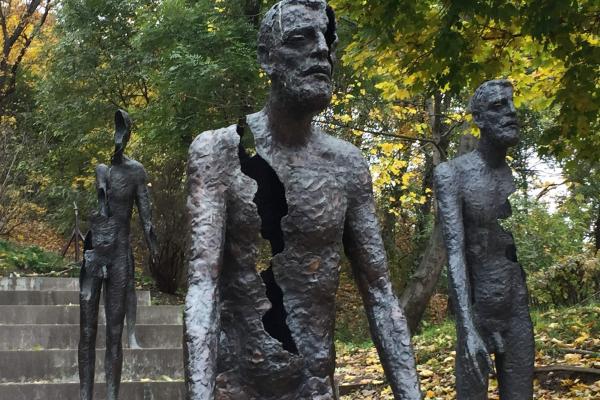THE BROKEN MEN of Prague lurch down Petřín hill toward Malá Strana, their hunger as clear as the hollow iron torsos where their bellies used to be. The man leading the march looks whole, more or less, but visitors can see his followers slowly dissolve behind him ... a gash here, a missing arm there, until, at the top of the stairs, only a foot where a whole man used to be.
To capture a human in the process of breaking apart requires attention. It’s immediately clear that the sculptor of these Broken Men, Olbram Zoubek, was intimately familiar with the process. Prague’s Soviet occupiers also knew something about decay, which the monument commemorates with grim precision—at the feet of the statues is a thin bronze line marking the numbers of Czechs affected by Soviet-era communism: 170,938 forced into exile ... 327 shot trying to escape ... 4,500 dead in prison. But the numbers are but a footnote to the decaying bodies on the hill. The long, grinding erosion of civil society is a personal trauma all its own.
Read the Full Article

